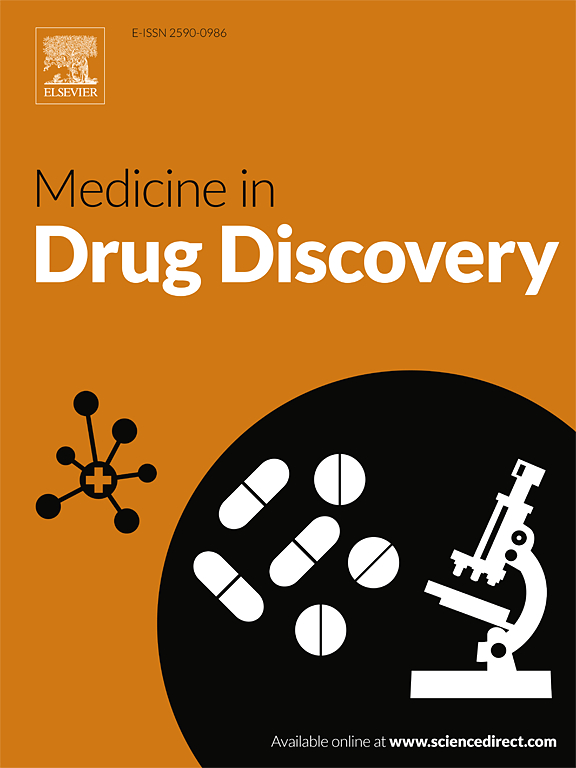Structural features of arrestin-mediated GPCR signaling
Q2 Medicine
引用次数: 0
Abstract
G protein-coupled receptors (GPCRs) constitute a diverse and extensive array of cell surface receptors, rendering them essential targets for drugs aimed at various human diseases. Responding to a range of extracellular or intracellular cues, GPCRs regulate cellular signaling through downstream transducers such as heterotrimer G proteins, GPCR kinases (GRKs), and arrestins. The wealth of 3D structures available for GPCRs and their signaling complexes significantly enhances our understanding of GPCR biology and expedites the development of structure-based drug discovery methods aimed at GPCR signaling. While the structural exploration of GPCR-G protein complexes has advanced, recent years have seen substantial breakthroughs in unraveling the mechanism behind arrestin-mediated GPCR signaling. This review aims to explore emerging insights into arrestin activation and its interaction with GPCRs, shedding light on the various ways GPCRs engage with arrestins both conservatively and diversely. Additionally, we summarize recent endeavors focused on designing functionally selective (’biased’) ligands targeting GPCRs, with desired effects on/off arrestin signaling. Our goal with this review is to spotlight studies investigating the structural aspects of GPCR activation and arrestin-binding modes, with a specific emphasis on arrestin-mediated GPCR signaling.
捕获素介导的 GPCR 信号的结构特征
G 蛋白偶联受体(GPCR)构成了多种多样的细胞表面受体,使它们成为治疗各种人类疾病药物的重要靶点。GPCR 可对一系列细胞外或细胞内线索做出反应,并通过异三聚 G 蛋白、GPCR 激酶 (GRK) 和抑制素等下游传导因子调节细胞信号传导。大量 GPCR 及其信号复合物的三维结构大大增强了我们对 GPCR 生物学的了解,并加快了针对 GPCR 信号转导的基于结构的药物发现方法的开发。在对 GPCR-G 蛋白复合物进行结构探索的同时,近年来在揭示 arrestin 介导的 GPCR 信号转导机制方面也取得了重大突破。这篇综述旨在探讨关于捕获素激活及其与 GPCR 相互作用的新见解,揭示 GPCR 与捕获素保守和多样化接触的各种方式。此外,我们还总结了最近在设计针对 GPCR 的功能选择性("偏向性")配体方面所做的努力,这些配体对/对 arrestin 信号转导具有理想的效果。我们撰写这篇综述的目的是重点介绍有关 GPCR 激活和 arrestin 结合模式的结构方面的研究,并特别强调 arrestin 介导的 GPCR 信号转导。
本文章由计算机程序翻译,如有差异,请以英文原文为准。
求助全文
约1分钟内获得全文
求助全文
来源期刊

Medicine in Drug Discovery
Medicine-Pharmacology (medical)
CiteScore
8.30
自引率
0.00%
发文量
30
审稿时长
21 days
期刊介绍:
 求助内容:
求助内容: 应助结果提醒方式:
应助结果提醒方式:


